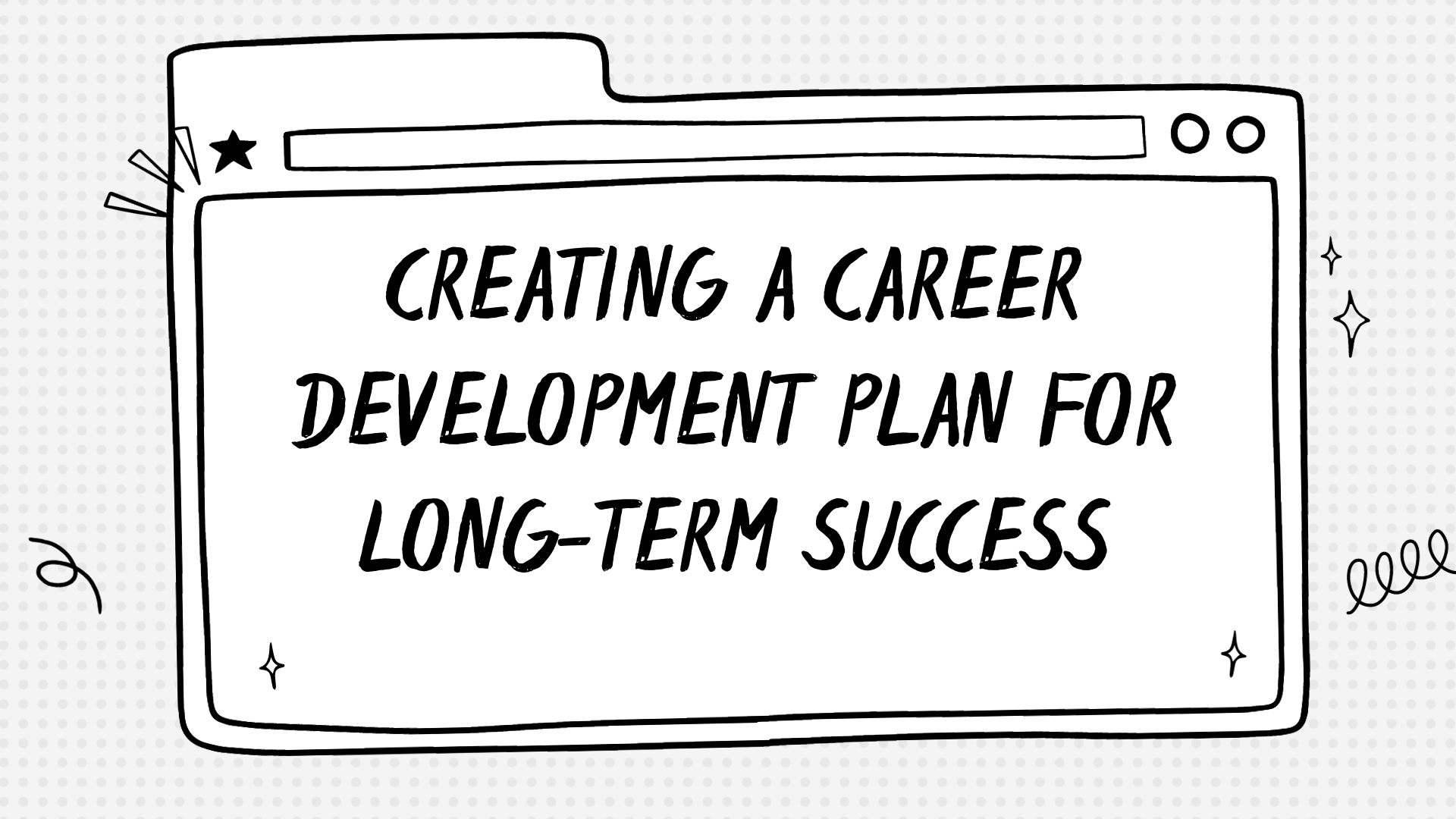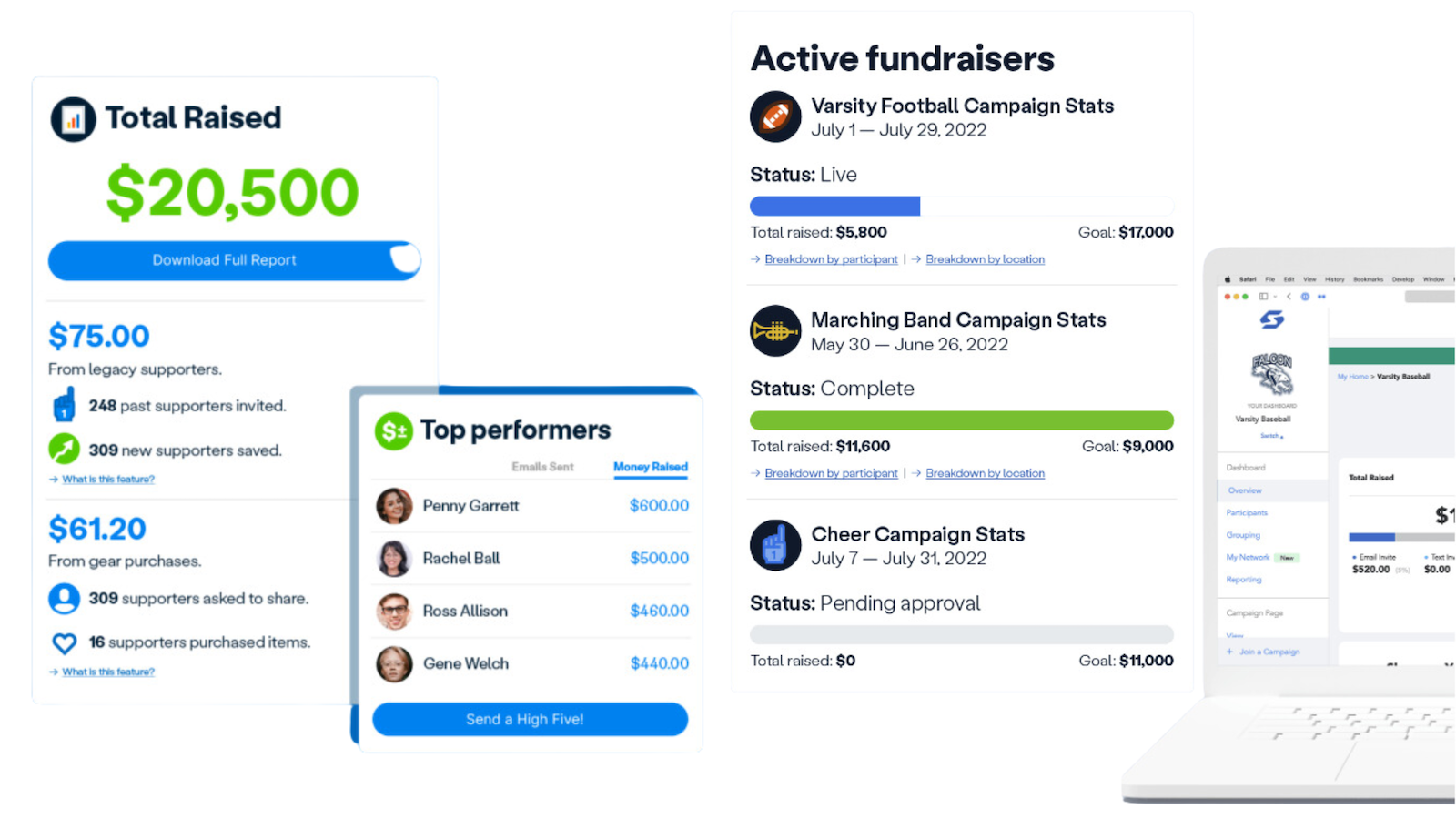Feeling as if you’re hitting a brick wall in your career, with no visible runway for progress? Trust me, it’s a tough spot to find yourself in. Yet, research lends support to the idea that crafting a thoughtful Career Development Plan can pave the way for lasting success.
In this post, we’ll equip you with key steps to design an empowering plan set to catapult your professional growth. So gear up and let’s embark on this journey towards limitless success!
Key Takeaways
- A career development plan helps establish clear goals and provides motivation for long-term success and growth.
- To create a career development plan, start by identifying your current position and defining your desired destination.
- Conduct a gap analysis to identify areas that need improvement and create actionable steps with deadlines.
- Regularly measure progress and adapt the plan as needed to ensure effectiveness.
The Importance of a Career Development Plan
Having a career development plan is crucial as it helps to establish clear goals and provides motivation for long-term success and growth.
How it helps with goal-setting and motivation
A career development plan serves as a powerful tool for propelling personal motivation and sharpening focus on set goals. It works like a personalized map, pinpointing the exact location of your current professional standing and charting out an individual pathway towards desired success.
The magic of this planning process resides in its ability to turn abstract dreams into tangible targets. For instance, instead of vaguely aspiring to climb the corporate ladder, you might set a goal to become a department manager within five years.
Aligning your ambitions with concrete milestones not only fuels motivation but also facilitates continuous progress evaluation against specific, measurable standards. As such, even minor accomplishments along the way become noticeable victories worthy of celebration- boosting your morale and driving you further down the road to long-term success.
The impact on long-term success and growth
A career development plan sets the stage for vibrant growth and prosperity in your professional life. It charts a clear pathway to success, plotting short-term and long-term goals on your individual journey.
Thoughtful planning ignites motivation, providing direction towards achieving these milestones. With each accomplished goal, you’re not just ticking off a box but building a comprehensive framework of skills and experiences that propels you forward in your field.
This continuous learning is what leads to job satisfaction and performance improvement over time. In this light, having a well-structured plan isn’t just an exercise in foresight; it’s a fundamental tool for fostering future leadership capabilities too.
Imagine yourself advancing into key roles or even starting your own business – such visions become attainable with a robust career development plan.
There’s no denying the essential role of an effective action plan in sculpting long-term career growth and success strategies. The value lies not only in the endpoint but also within every step taken along the way – after all, professional development is as much about the journey as it is about the destination! Embrace the rigorous yet rewarding process of setting meticulous deadlines that push against complacency while encouraging innovation and resilience – key traits for long-haul successes! It’s evident how crucial executing smart, measurable plans is in shaping our triumphs over time; indeed, they form solid foundations upon which strong career advances flourish!
Steps to Create a Career Development Plan
To create a career development plan, start by identifying your current position and then define your desired destination. Conduct a gap analysis to identify the areas that need improvement and create actionable steps with deadlines to reach your goals.
Measure your progress along the way and adapt as needed for optimal success.
Identify your current position
To begin crafting your career development plan, you must first identify where you stand in your professional life. This involves assessing your current role and the skills, knowledge and abilities that come with it.
Take an honest look at the tasks you perform daily, the responsibilities you hold and how these align with your career goals. This self-evaluation provides a clear starting point for creating actionable steps towards achieving your long-term success.
It’s like taking stock of what tools are already in your toolbox before deciding on what new ones to add.
Define your desired destination
To create a successful career development plan, it is important to define your desired destination. This means taking the time to envision where you want to be in your career and what success looks like for you.
Think about the specific goals you want to achieve and the milestones that will mark your progress along the way. By clearly defining your destination, whether it’s advancing to a leadership position or starting your own business, you can create an effective plan that sets you on the path towards long-term success.
Conduct a gap analysis
To create an effective career development plan, it is important to conduct a gap analysis. This involves assessing the difference between your current skills and qualifications and the ones required for your desired future position.
By identifying these gaps, you can develop a clear understanding of what areas you need to focus on in order to bridge them. A thorough gap analysis will help you determine which specific skills or knowledge you need to acquire or improve upon, allowing you to set actionable steps towards achieving your long-term career goals.
Remember, a successful career development plan should be tailored to address these gaps and guide your professional growth journey effectively.
Key phrases: effective career development plan, conduct a gap analysis, assess the difference, current skills and qualifications,
Create actionable steps and deadlines
To create a successful career development plan, it is essential to break down your goals into actionable steps with specific deadlines. This will help you stay focused and motivated as you work towards achieving your long-term objectives.
By setting clear milestones and establishing timelines for each step, you can measure your progress and ensure that you are on track to reach your desired destination. These actionable steps and deadlines provide structure and accountability, guiding you towards long-term success in your professional growth.
Measure progress and adapt as needed
To ensure the effectiveness of your career development plan, it is crucial to regularly measure your progress and make necessary adjustments along the way. By tracking your achievements and milestones, you can gain valuable insights into what is working well and what may need modification.
Assessing your progress allows you to stay on track towards your long-term goals, while also identifying any areas that require improvement or additional attention. By adapting as needed, you can ensure that your career development plan remains relevant and aligned with your aspirations for long-term success.
Tips for Success in Career Development
Seek guidance and support from experienced mentors or colleagues who can provide valuable insights and advice. Continuously invest in developing new skills and credentials to stay competitive in the ever-evolving job market.
Take advantage of networking opportunities to explore different career paths and expand your professional network for future opportunities.
Seek support from mentors or colleagues
Seeking support from mentors or colleagues is a crucial aspect of creating a successful career development plan. Mentors and colleagues can provide valuable guidance, advice, and insights based on their own experiences and expertise.
They can help you identify areas for improvement, offer suggestions for skill development, and share strategies to overcome challenges along your career journey. By seeking support from others who have already achieved success in their fields, you can gain valuable knowledge and perspective that will help you navigate your own path towards long-term success.
Don’t be afraid to reach out and ask for help – connecting with mentors or colleagues who are willing to share their wisdom is an important step towards achieving your professional goals.
Continuously develop skills and credentials
Continuously developing skills and credentials is key to long-term career success. By actively seeking out opportunities for growth, such as attending workshops, taking online courses, or participating in professional development programs, you can stay up-to-date with the latest industry trends and advancements.
This not only enhances your knowledge and expertise but also demonstrates your commitment to personal and professional growth. By continuously improving yourself, you increase your value as an employee or entrepreneur, positioning yourself for greater opportunities and advancement in your chosen field.
Don’t be afraid to step outside of your comfort zone and explore new areas of interest or acquire additional certifications that align with your long-term goals. Remember, lifelong learning is essential for staying competitive in today’s ever-changing job market.
Network and explore different career paths
Networking and exploring different career paths are essential steps in creating a successful career development plan. Building a strong professional network can open doors to new opportunities, provide valuable insights, and help you connect with mentors or colleagues who can guide your career growth.
By networking with professionals in various industries or roles, you can gain exposure to different job possibilities and learn about the skills and qualifications needed for those paths.
This exploration allows you to expand your horizons, consider alternative career options, and make informed decisions about your long-term goals.
Conclusion: The Benefits of Having a Career Development Plan for Your Long-Term Success.
Creating a career development plan is crucial for long-term success in your professional growth. It helps you set goals, stay motivated, and measure your progress along the way. With an effective plan in place, you can confidently navigate your career pathway and achieve the long-term success you desire.
So take charge of your future and start creating your career development plan today!
FAQs
1. Why is it important to have a career development plan?
Having a career development plan is important because it helps you set goals, identify your strengths and weaknesses, and create a roadmap for long-term success in your chosen field.
2. How do I create a career development plan?
To create a career development plan, start by assessing your current skills and interests, setting clear goals, creating action steps to achieve those goals, seeking opportunities for growth and learning, and regularly reviewing and adjusting your plan as needed.
3. Can a career development plan help me advance in my current job?
Yes, having a career development plan can help you advance in your current job by identifying areas where you need to improve or gain new skills, enabling you to take on more challenging assignments or positions within the company.
4. Is it necessary to consult with others when creating a career development plan?
While not necessary, consulting with mentors or professionals in your field can provide valuable insights and guidance when creating a career development plan. They can offer advice on potential paths or strategies that may align with your goals.
5. How often should I review and update my career development plan?
It is recommended to review and update your career development at least annually or whenever there are significant changes in your professional life such as completing education programs or achieving major milestones.




